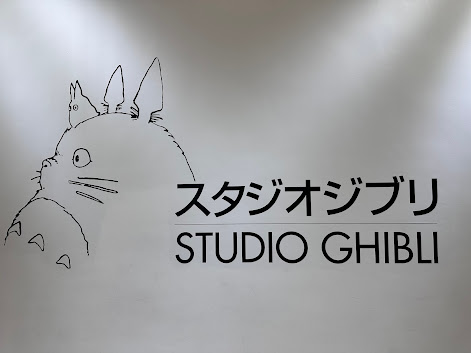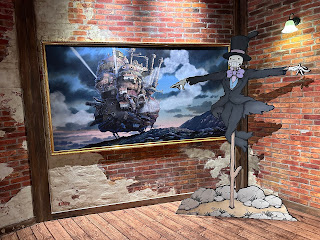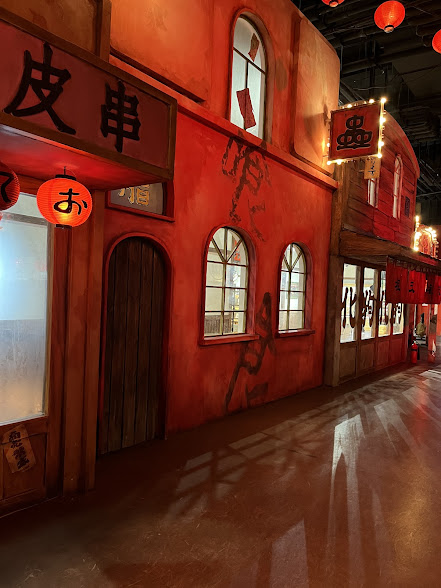April 12th - Oct 31st 2024 at the Shanghai International Media Port's Art Center (near longyao station 隆耀地铁站 at the West Bund 西滩)
Mon-Thu, 11am-6pm, Fri-Sun, 10am-7pm
International Media Port Art Center
2/F-3/F, 10 Longtai Lu, near Longteng Da Dao
Single ticket (Mon-Thu): 158rmb
Single ticket (Fri-Sun, holidays): 198rmb
Child ticket (children between 1 to 1.4 meters): 88rmb
Family ticket (2 adults + 1 child, Mon-Thu): 358rmb,
Familyticket (2 adults + 1 child, Fri-Sun&holidays): 388rmb


Why the name?
The name "Ghibli" was chosen by Miyazaki from the Italian noun ghibli (also used in English), the nickname of Italy's Saharan scouting plane Caproni Ca.309, in turn derived from the Italianization of the Libyan Arabic name for a hot desert wind (قبلي qibliyy). The name was chosen by Miyazaki due to his passion for aircraft and also for the idea that the studio would "blow a new wind through the anime industry".



Many movies are filmed with some of the most renowned films especially featured:
Castle in the Sky (1986)
Kiki's Delivery Service (1989)
My Neighbor Totoro (1988)
Princess Mononoke (1997)
Spirited Away (2001)
Howls moving Castle (2004)
The Boy and the Heron (2023)
Disney and Ghibli have worked together to create, promote and distribute English-dubbed versions of many of the films. Although the Studio has a "No cuts" policy in terms of international versions and dubs, this does not apply to promotional posters, etc., for which the film makers collaborate with Disney to produce cultural appropriate international versions. They feature some of these different versions for titles in different countries which shows how the artwork and names are changed
The Studio has made use of slight rebranding for the international stage using slightly tweaked promotional imagery for different cultural norms.
eg. The Japanese and English versions of the movie poster for Spirited Away (2001). For English-speaking audiences, the name of the film was changed from the Japanese version, which roughly translates to, "The Disappearance of Chihiro and Sen", to "Spirited Away" for a more mystical, otherworldly theme (the direct Japanese translation could be taken to mean that Chihiro/Sen disappeared due to some more dangerous reason).
On the American movie poster, more pictures of spirits from the film were added to the background to further pique the viewer's interest with more supernatural themes, creating an association between the pictures spirits and what most American people would think of as "ghosts".
For the Japanese poster, there are fewer spirits as the Japanese Shinto religion normalizes the existence of spirits, so less emphasis is needed to convey the importance of non-human spirits.













































No comments:
Post a Comment